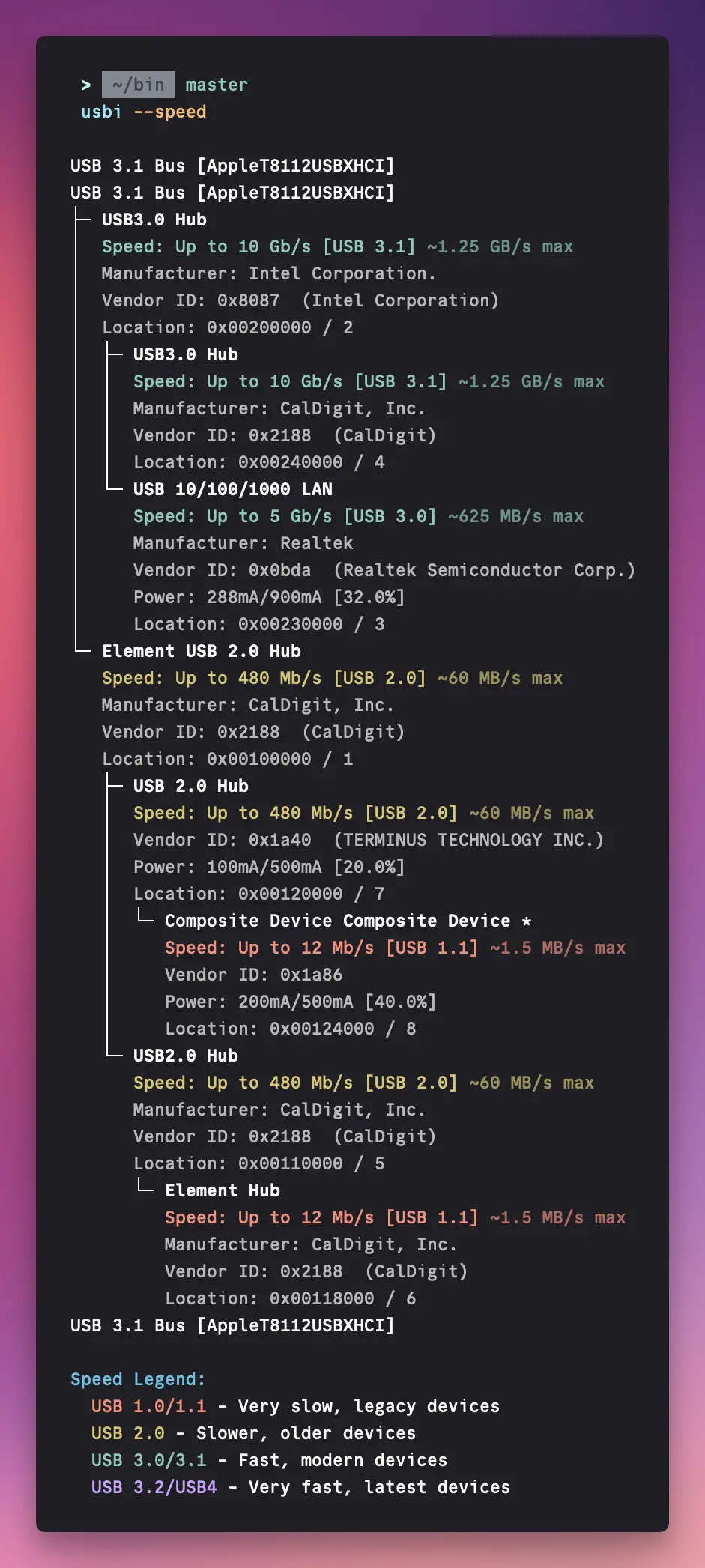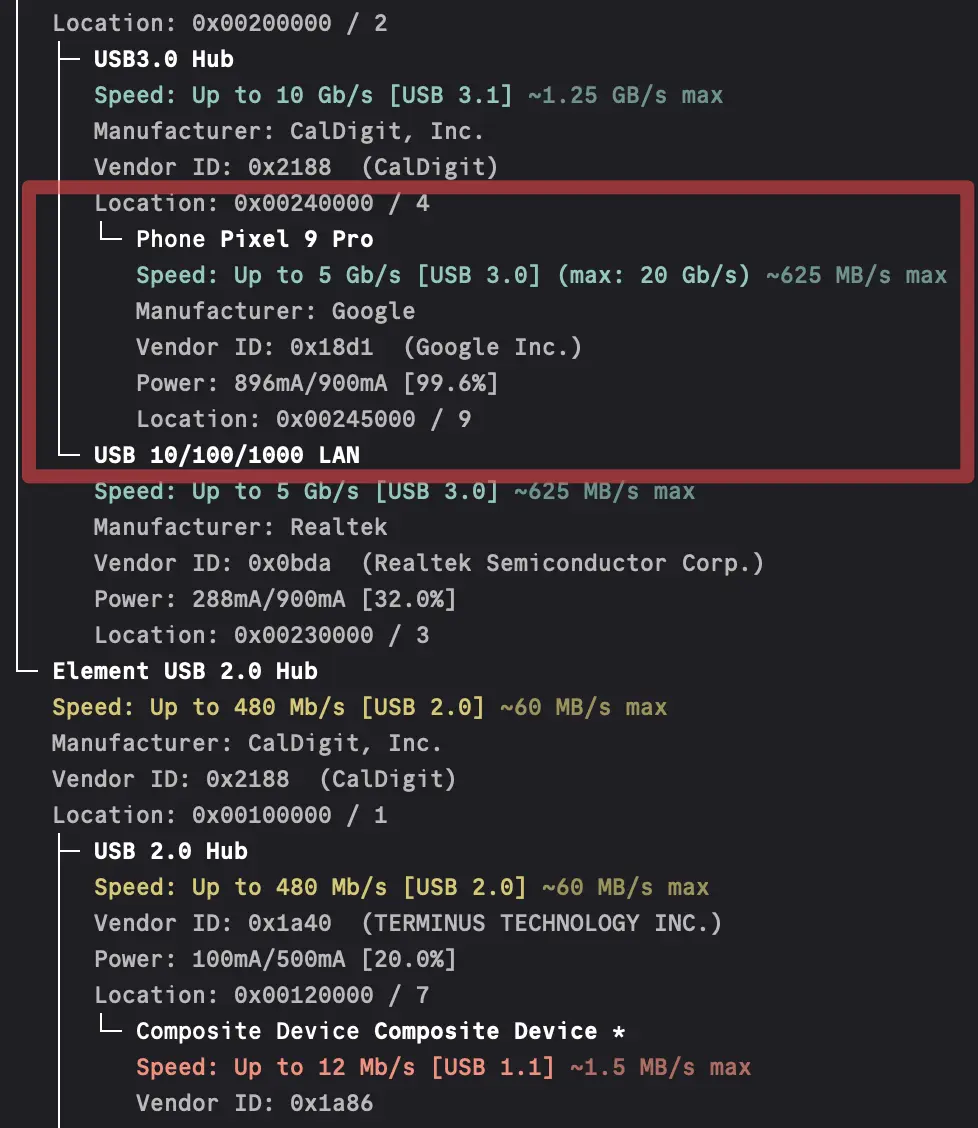Apple slightly altered the system command for Tahoe
You have a drawer full of USB cables. Half are junk that barely charge your phone. The other half transfer data at full speed. But which is which?
Android Studio solved this. Recent versions warn you when you connect a slow cable to your phone:
I wanted this for the command line. So I “built”1 usbi, a script to check your USB connections.
The script parses macOS’s system_profiler SPUSBHostDataType2 command, which produces a dense, hard-to-scan raw output:

With a little bit of scripting, the output becomes much cleaner:

When I connect my Pixel3:

Quick notes on the vibe-coding experience #
The first version was a bash script I cobbled together with AI. It worked, but was a mess to maintain. Because I let AI take the wheel, even minor tweaks like changing output colors were difficult.
Second time around, I decided to vibe-code again but asked AI to rewrite the entire thing in Go. I chose Go because I felt I could structure the code more legibly and tweaks would be easier to follow. Go also has the unique ability to compile a cross-platform binary, which I can run on any machine.
But perhaps the biggest reason is, it took me a grand total of 10 minutes to have AI rewrite the entire thing. I was punching through my email actively as Claude was chugging on the side.
Two years ago, I wouldn’t have bothered with the rewrite, let alone creating the script in the first place. The friction was too high. Now, small utility scripts like this are almost free to build.
That’s the real story. Not the script, but how AI changes the calculus of what’s worth our time.

Discuss this on Hacker News